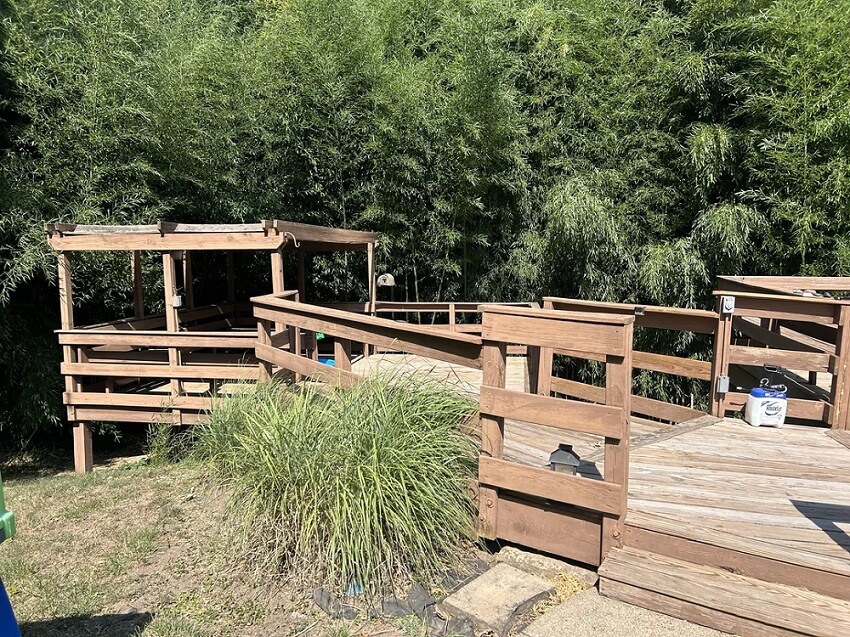It's every new homeowner's worst nightmare to stumble upon something they missed during the inspection. It's even worse when that something will likely be very, very expensive.
For one new homeowner, that unsavory discovery came in the form of a beautiful bamboo forest in their new backyard.
"How screwed are we?" they wrote in the subreddit r/landscaping. "Recently bought a house and it has a bamboo forest behind it (on our property). Didn't realize how invasive it was until after the purchase of the house unfortunately."

They included a photo of the lush, seemingly impenetrable bamboo forest.
"I love the look of it and my kids love playing in there!" they added in the comment. "Just worried about the roots and what it could potentially do to the house!"
Several commenters had faced down the battle against bamboo, and they offered a range of opinions.
"Took 3 full days for me to remove bamboo from a 10ish square foot area … I will never mess with bamboo again unless machines are there to help. This was in 2016 I think, and I kid you not, my back still hurts," one person said.
Another shared a similarly challenging experience.
"I cut the bamboo down and then was zealous for 3 years," they wrote. "... It had taken over a third of the backyard and was constantly getting into the neighbors' yards."
Others took an alternative approach.
"Removing bamboo is hard work and takes years and years…just better to contain than eliminate," one person advised.
"I would invest in learning how to make bamboo furniture," another joked.
Whatever the owner decides to do, one thing is certain: A backyard full of invasive plant growth requires constant maintenance. Many homeowners and landscapers have learned this the hard way, whether they've been forced to deal with the consequences of their own actions or of somebody else's. From English ivy to Japanese knotweed — and even popular species that are less commonly known to be invasive, like mint or raspberries — it's critical to keep a handle on invasives in order to keep them from smothering native plants.
And for anybody lucky enough to be starting out their landscaping with a clean slate, choosing to rewild your yard with easy-to-grow native plants is an excellent way to nourish local pollinators, wildlife, and the entire ecosystem while saving money on watering, pesticides, and fertilizers.
Join our free newsletter for easy tips to save more and waste less, and don't miss this cool list of easy ways to help yourself while helping the planet.









